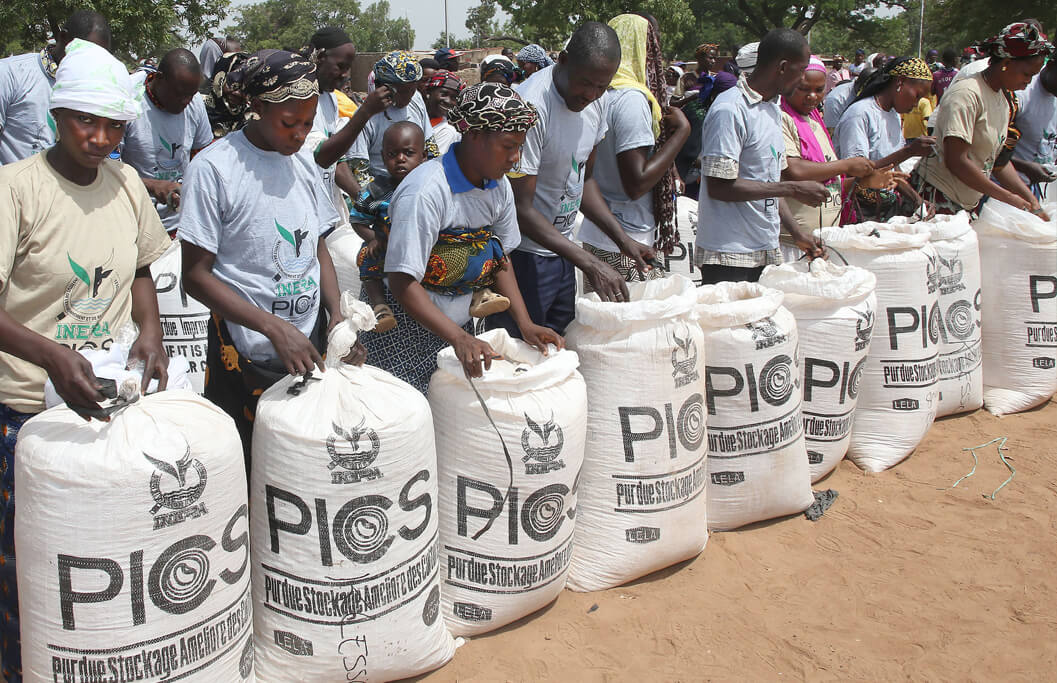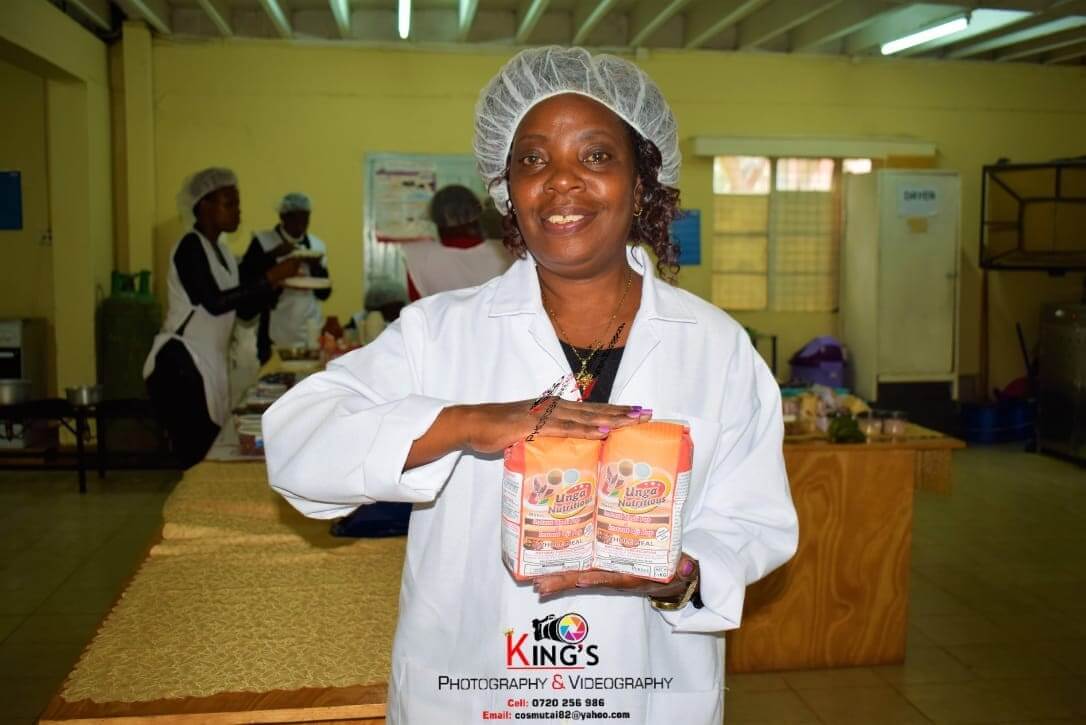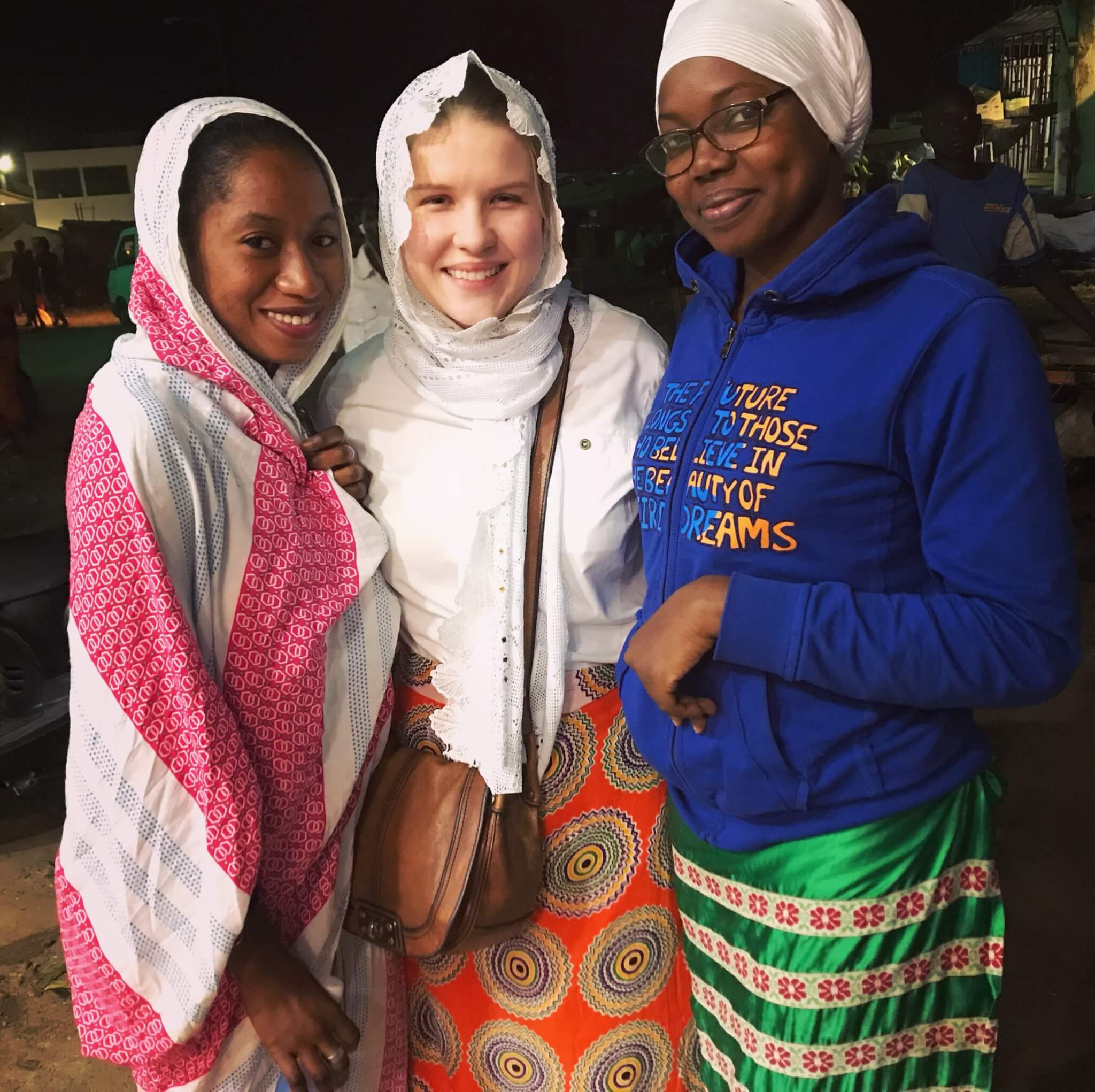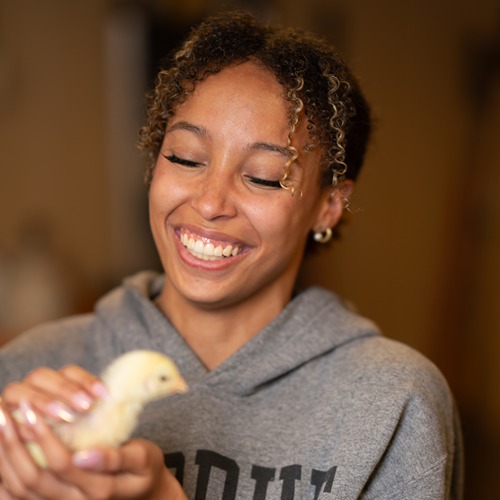Feed the Future Innovation Lab for Food Processing and Post-Harvest Handling at Purdue University
Providing Sustainable Post-Harvest Solutions for sub-Saharan Africa
Led by the U.S. Agency for International Development (USAID), Feed the Future is the U.S. Government’s initiative to end global hunger and enhance food security. More than 20 Feed the Future Innovation Labs are paired with experts from leading U.S. universities to help address grand challenges in agriculture and food security. Researchers at Purdue University power the Feed the Future Innovation Lab for Food Processing and Post-Harvest Handling (FPIL). FPIL seeks to reduce post-harvest loss, promote economic growth, improve nutrition, and enhance food security in Feed the Future target countries.
Identifying low-cost methods for controlling aflatoxin in stored maize.
FPIL researchers have studied cost-effective ways to prevent or limit aflatoxin contamination of key crops for rural subsistence households in Sub-Saharan Africa. In collaboration with Istitut Sénégalais de Recherches Agricoles (ISRA), the premier agricultural research institution in Senegal, the research team set up a randomized intervention in the Department of Vélingara in southern Senegal. The technologies included a hygrometer to verify moisture content (developed under FPIL at Purdue); plastic sheeting as an alternative to drying on bare ground; and the Purdue Improved Crop Storage (PICS) bag as a means of preventing insect contamination and limiting fungus growth in stored maize. The results provide practical guidance to lower aflatoxins in staple crops, and suggest that strategies to reduce aflatoxins should address issues from harvest to storage comprehensively.
Partnerships & Collaborations
A partnership between the FPIL and the University of Eldoret in Kenya resulted in the establishment of the Food Processing Training and Incubation Center. Housed on the University of Eldoret’s campus, the center is fitted with basic food processing equipment and a research laboratory. It provides a space for small-scale processing, product research and development, and serves as a training facility for local entrepreneurs.
Madame Astou Gaye Mbacke first collaborated with the FPIL in 2016. This partnership led to her business, the Touba Darou Salam Cereal Processing Unit, gaining a food extruder that gave the facility the technical capacity to develop instant enriched flours. Today her instant flours are sold through a network of over 1,000 Senegalese women. The instant flour business offers a source of income, empowerment, and independence to women entrepreneurs who collaborate with Mbacke’s processing unit.
Sustainability & Scaling Up
In January 2020, FPIL researchers Dr. Cheryl O’Brien of San Diego State University and Laura Leavens, a graduate student at Purdue University, traveled to Senegal to evaluate the impact of the Touba Darou Salam Cereal Processing Unit on incomes and empowerment of the entrepreneurs. In the study, 98 percent of women surveyed reported their household incomes increased after collaborating with Mbacke. The FPIL team found average female retailer sells 50 kilograms of instant flours during a typical sales month, earning the equivalent of half the monthly household income of a typical Senegalese household. Additionally, the participants also reported that instant flour sales increase their households' ability to improve their dietary diversity, invest in their children’s education, and several other key elements.
The FPIL’s first phase contributed to strengthening institutional and human capacities. This training and capacity development is vital to the long-term sustainability of local systems. The FPIL will continue to drive the value-chain through food processing which will help to improve nutrition and increase commercialization in Sub-Saharan Africa. The Feed the Future Innovation Lab for Food Processing and Post-Harvest Handling plans to have many more success stories to tell.
This article was made possible through support provided by Feed the Future Innovation Lab for Food Processing and Postharvest Handling through the U.S. Agency for International Development, under the terms of Contract No. AID-OAA-L-14-00003 . The opinions expressed herein are those of the author(s) and do not necessarily reflect the views of the U.S. Agency for International Development.









